World
What challenges lie ahead for Guatemala’s President-elect Arevalo?
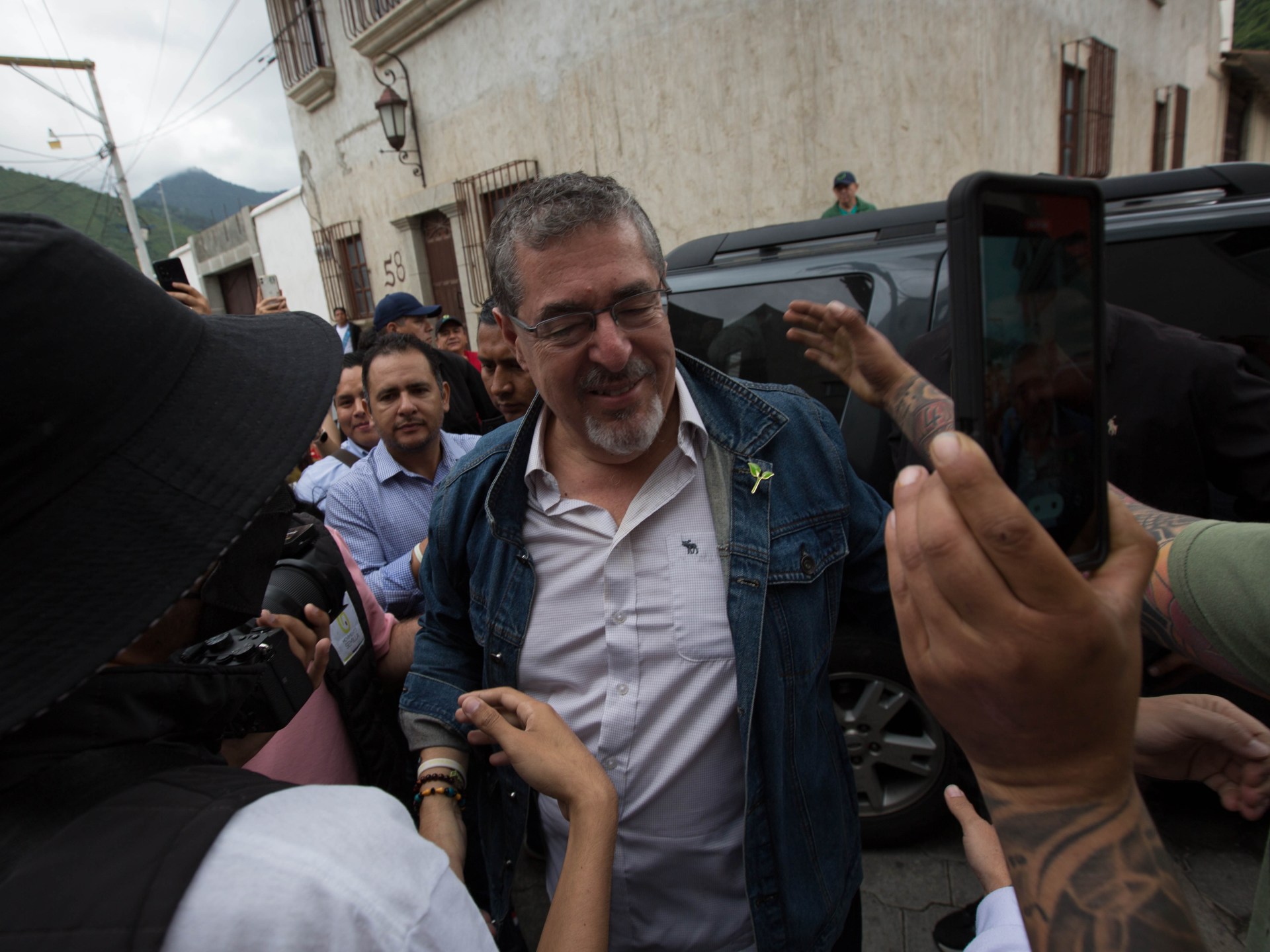
Guatemala City, Guatemala – Guatemala City’s central plaza is traditionally a gathering spot for protests. But on the night of August 20, it was filled with jubilation, as supporters celebrated Bernardo Arevalo’s election as president.
A congressional representative, academic and outspoken critic of corruption, Arevalo won Guatemala’s presidential run-off in a landslide, earning an estimated 58 percent of the votes.
But while his victory has reinvigorated hopes for Guatemala’s fragile democracy, experts warn of challenges ahead, as Arevalo faces a hostile public prosecutor, an opposition-led legislature and questions of entrenched corruption in the government.
Even his challenger, conservative Sandra Torres, has yet to concede defeat, fuelling speculation that his election could be contested. Torres’s party, National Unity of Peace (UNE), filed a complaint on Friday alleging inconsistencies in the vote tally.
And one day earlier, the Inter-American Commission on Human Rights called for additional security to protect Arevalo, as he faced possible death threats and other “serious, urgent” risks to his wellbeing.
“Arevalo symbolises the possibility to begin again — to reconstruct state institutions and combat corruption,” Marielos Chang, an independent political analyst, told Al Jazeera. “But he faces a great challenge.”
Underdog turned frontrunner
When he is sworn into office on January 14, Arevalo will become Guatemala’s first progressive president in seven decades, breaking a streak of right-wing governments.
“Arevalo’s victory was a referendum on the ruling coalition in Guatemala,” Edgar Ortiz, a political analyst and constitutional lawyer, told Al Jazeera.
“He is a very unusual candidate in Latin American politics,” he explained. “He’s an intellectual, he’s a peacemaker, he’s a good negotiator, and he will need those skills in order to govern a country with political fragmentation, with organised crime and with distrust from conservative sectors that consider Arevalo too progressive for Guatemalan politics.”
But the 64-year-old Arevalo is no stranger to national politics. His father was former President Juan Jose Arevalo, who went into exile after a coup d’état deposed his successor in 1954.
As a result, the younger Arevalo was born in Uruguay. After pursuing degrees at universities in Israel and the Netherlands, he followed in his father’s footsteps, entering both academics and politics.
In the 1990s, Arevalo served as ambassador to Spain. And in 2019, he won a seat in Congress with the recently formed Seed Movement, a left-leaning party formed around anti-corruption advocacy.
Arevalo’s success in the first round of the 2023 presidential election came as a surprise to many, as he had consistently polled at less than 3 percent in national surveys.
His second-place finish earned him a spot in the run-off vote — as well as a wave of backlash.

An ongoing investigation
As the August run-off election approached, Arevalo began to climb in the polls, overtaking Torres, the early frontrunner.
But even as a candidate, he faced pushback from within government institutions. In July, shortly after the results of the first round of voting were certified, the Special Prosecutor’s Office Against Impunity sought to suspend the Seed Movement, alleging there were irregularities in how the party was formed in 2017.
The Special Prosecutor’s Office claimed it had found 5,000 fraudulent signatures in the party’s membership rolls, including over a dozen dead people.
But critics have questioned the agency’s motives. The Special Prosecutor’s Office is led by Rafael Curruchiche, a politician the United States has sanctioned as a “corrupt and undemocratic actor” for raising “spurious claims” against prosecutors involved in anticorruption efforts.
Nevertheless, the Special Prosecutor’s Office has promised to continue its investigation into the Seed Movement even after Arevalo’s election.
If it succeeds in annulling the party, politicians within the Seed Movement could be marooned without a legislative bloc, preventing them from being appointed to key commissions.
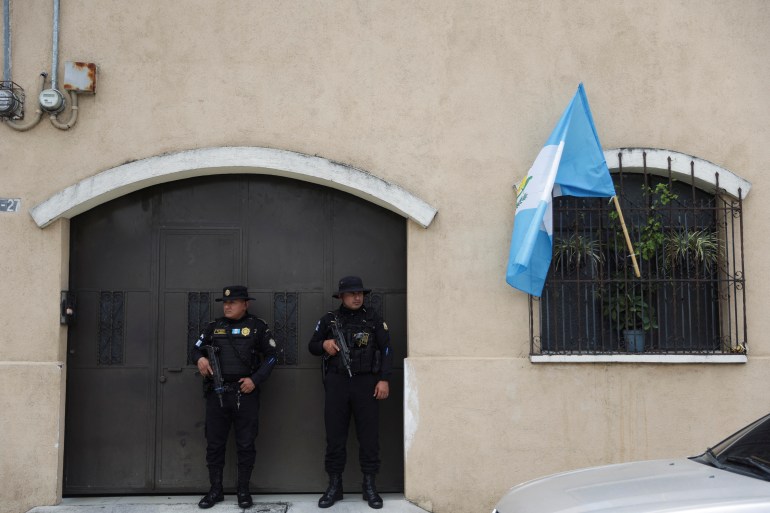
Questions of corruption
Even with his party to back him, Arevalo will face an uphill battle to build consensus and fight what many believe to be institutional corruption.
In recent years, journalists, lawyers, advocates and judges involved in anticorruption efforts have fled the country or faced arrest on what critics believe are trumped-up charges.
Meanwhile, Arevalo and his running mate Karin Herrera Aguilar have both faced “stigmatisation, harassment, hounding, public disclosure of personal details on social media and threats including two specific plans to hurt them and even kill them”, according to the Inter-American Commission on Human Rights.
Corruption has been a longstanding issue in Guatemala, one that has undermined confidence in public institutions.
According to an August poll from the market research firm CID Gallup and the Foundation for Liberty and Freedom, 70 percent of the population sees the administration of outgoing President Alejandro Giammattei as corrupt.
However, implementing change could be difficult. Upon taking office, Arevalo will confront a legislature stacked with opponents. In this year’s elections, the current ruling party Vamos and Torres’s UNE party won a combined 67 seats out of a total of 160, giving conservatives control over Congress.
The Seed Movement, meanwhile, only earned 23 seats.
But political analysts have speculated that Arevalo could bridge the political divide if he seeks broad consensus.
“Arevalo will need to be very open to talk to many sectors of society, not only the political sector,” Ortiz said.
“He will need to talk to this old political party system that he ran against and that he beat, and he also will need to bring all other sectors together, including the productive sectors, which are suspicious of him.”
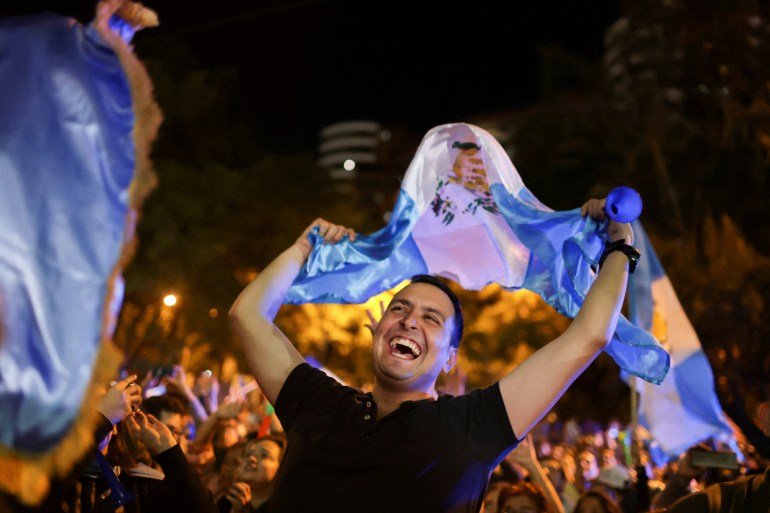
Economic concerns spurring migration
Faced with such opposition, Ortiz believes Arevalo will need to focus on achieving short-term wins with issues like crime and medicine shortages in hospitals.
“Expectations are really high, but the problems are really hard to fix,” Ortiz says. “In the first six months, healthcare, security and education are the areas in which he can make a big difference.”
Organised crime remains an issue throughout the Central American region. In Guatemala, the Centre for National Economic Research found an uptick in homicides between 2021 and 2022, for a rate of 17.3 murders per 100,000 inhabitants.
Poverty is on the rise, too. Around 60 percent of the population rests below the poverty line, and the country has some of the highest rates of youth malnutrition in Latin America, with the United Nations estimating that one out of every two children suffers from it.
The dire conditions have forced hundreds of people a day to leave Guatemala to find opportunities elsewhere.
But Arevalo and the Seed Movement have proposed to stem migration by offering greater job training and employment, including through temporary work programmes.
He has also expressed openness to working with the international community, especially Mexico and the US, to address the migration crisis.
“We are willing to collaborate and build international cooperation to find structural solutions to the problem of migration,” Jonathan Menkos, a congressman-elect and economist who worked on the Seed Movement party’s governance plan, told Al Jazeera.
“We have to think about the wellbeing of the people and how we reduce the needs that people have that force them to migrate to another country.”

World
Italian state railways plans 1.3 bln euro investment in solar plant

World
Christmas in Puerto Rico is a 45-day celebration with caroling, festive decorations, family feasts and more
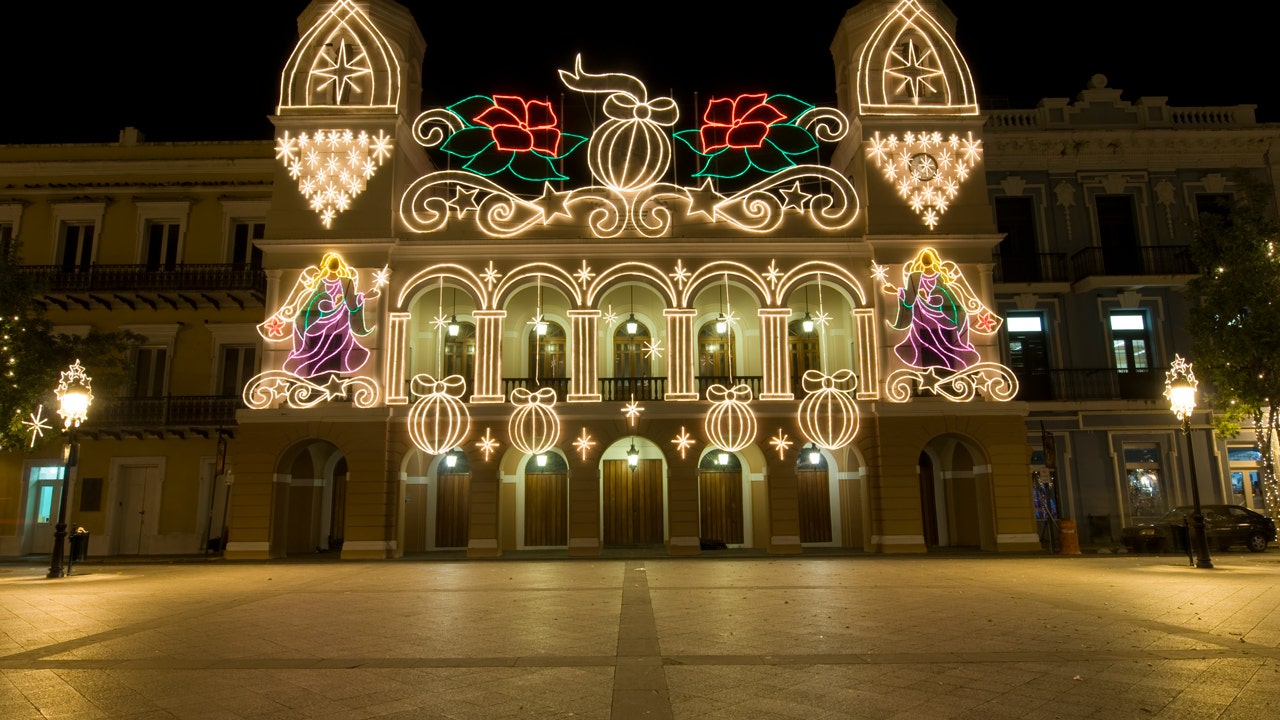
Christmas, Navidad in Puerto Rico, extends far beyond Dec. 25.
The island proudly proclaims itself as having the “longest holiday season in the world,” according to the website Discover Puerto Rico.
On average, the holiday festivities in Puerto Rico last about 45 days, per the source, commencing right after Thanksgiving, and stretching all the way through mid-January.
The Christmas season in Puerto Rico typically lasts around 45 days. (iStock)
HOW TO SAY ‘MERRY CHRISTMAS’ IN 10 LANGUAGES TO FRIENDS AROUND THE WORLD
The holiday season in Puerto Rico is full of rich traditions beloved by families.
One tradition those who visit Puerto Rico will immediately notice during the holiday season is decorations.
In Puerto Rico, decorations are typically put up by Thanksgiving, and kept up until the season concludes in mid-January, with opportune picture moments at every corner.
Parrandas, Christmas caroling, is a holiday staple.
17 SECRET TRAVEL TIPS FOR FALL AND WINTER THAT AREN’T SO SECRET AFTER ALL
Carolers choose houses of family and friends to visit, typically starting around 10 p.m., performing aguinaldos (traditional Christmas songs), with not only their voices, but often with instruments as well, according to Discover Puerto Rico.
The group you begin caroling with is likely not the same group you end with.
In Puerto Rico, when carolers visit a house, they’ll often stop inside for conversation, food and drink before moving to the next residence.
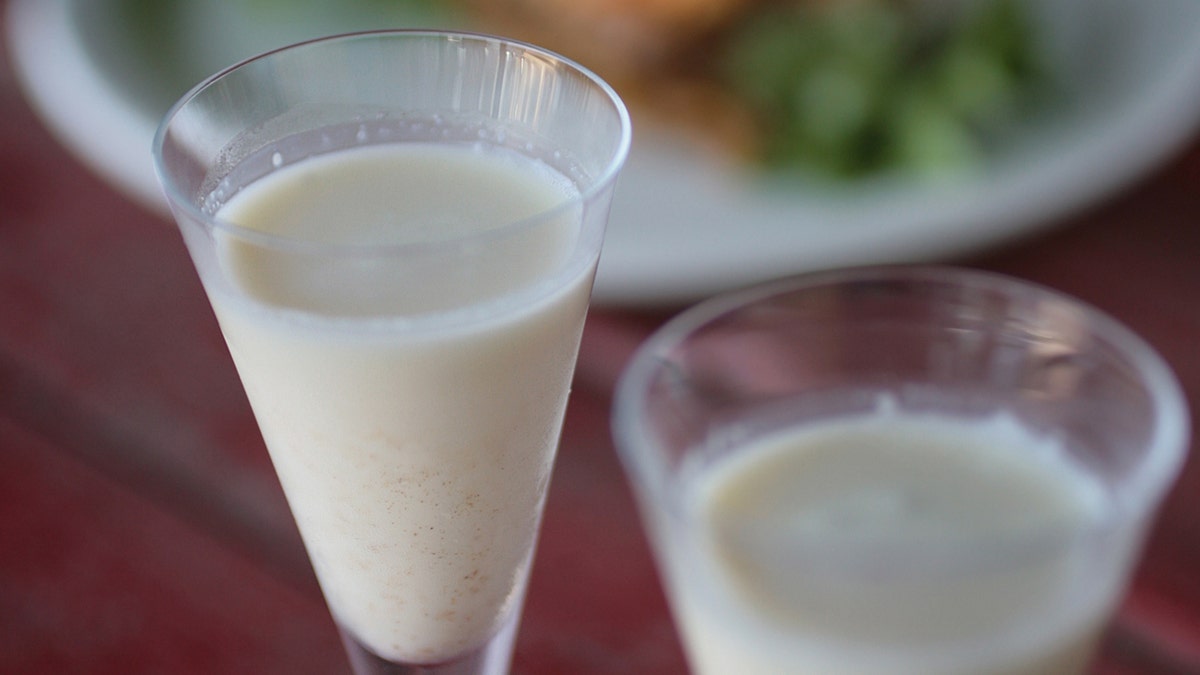
Coquito is a popular beverage enjoyed during the holiday season in Puerto Rico. Coconut, vanilla and rum are among the ingredients. (Mayra Beltran/Houston Chronicle via Getty Images)
Usually, the residences of the house visited will join the group for the next house, according to Discover Puerto Rico.
CHRISTMAS TREES IN GERMANY WERE DECORATED WITH APPLES INSTEAD OF ORNAMENTS IN THE 1600S FOR ‘ADAM AND EVE DAY’
A night of serenading loved ones can last quite a while, often stretching into the early morning hours of the following day, according to the source.
The biggest day of the holiday season in Puerto Rico actually isn’t Christmas, but instead, the night before.
In Puerto Rico, Dec. 24 is Nochebuena. On that day, loved ones gather for the exchange of gifts, caroling and a large feast.
Many families will also attend a midnight Mass on the day, known as Misa de Gallo.
FLIGHT ATTENDANTS REVEAL THE SURPRISING DAY TO TRAVEL AHEAD OF THE CHRISTMAS RUSH
After Christmas passes, the festivities go on in Puerto Rico.
Another big event in the holiday lineup is Three Kings Day on Jan. 6, a holiday that “commemorates the visit that the Three Wise Men paid to Jesus after his birth,” according to Discover Puerto Rico.
On the eve of the day, children fill up a shoebox with grass to be left for camels to munch on while the Three Kings leave behind gifts for them, according to PuertoRico.com.
For a particularly festive Three Kings Day, Juana Díaz is the place to go, as it hosts the largest celebration in Puerto Rico for the holiday. In Juana Díaz, there is an annual festival and parade in honor of Three Kings Day that brings together over 25,000 people every year, according to Discover Puerto Rico.

Gifts are primarily exchanged between loved ones on Christmas Eve in Puerto Rico. (iStock)
Then, eight days later is Octavitas, a post-holiday celebration where families get together and celebrate one last time for the season.
The end of the holiday season is marked with the San Sebastián Street Festival.
This festival, spanning over multiple days, takes place in Old San Juan, and is filled with live music, dancing, shopping and parades.
World
Small plane crashes into Brazil town popular with tourists, killing 10

Twin-engine plane crashed in largely residential neighborhood of Gramado shortly after takeoff, authorities say.
A small plane has crashed into a tourist hotspot in southern Brazil, killing all 10 people on board and injuring more than a dozen people on the ground, officials have said.
The twin-engine Piper PA-42-1000 hit the chimney of a home and the second floor of a different house before crashing into a shop in a largely residential neighbourhood of Gramado shortly after takeoff from Canela, Brazil’s Civil Defense agency said on Sunday.
Rio Grande do Sul Governor Eduardo Leite told a news conference that the aircraft’s owner and pilot, Luiz Claudio Galeazzi, was killed along with nine members of his family.
Leite said that 17 people on the ground were injured, 12 of whom were still receiving treatment in hospital.
Galeazzi’s company, Galeazzi & Associados, confirmed that its CEO and Galeazzi’s wife and three daughters had died in the crash.
“Luiz Galeazzi will be forever remembered for his dedication to his family and for his remarkable career as a leader of Galeazzi & Associados,” the company said in a post on LinkedIn.
“In this moment of immense pain, Galeazzi & Associados is deeply grateful for the expressions of solidarity and affection received from friends, colleagues and the community. We also sympathize with all those affected by the accident in the region.”
Gramado, located in the Serra Gaucha mountains, is a popular destination for vacationers, especially during the Christmas season.
The crash comes a little more than a year after Brazil suffered its worst air disaster in nearly two decades when a twin-engine plane crashed in the southeastern city of Vinhedo, killing all 62 people on board.
-

 Politics1 week ago
Politics1 week agoCanadian premier threatens to cut off energy imports to US if Trump imposes tariff on country
-
/cdn.vox-cdn.com/uploads/chorus_asset/file/25789444/1258459915.jpg)
/cdn.vox-cdn.com/uploads/chorus_asset/file/25789444/1258459915.jpg) Technology1 week ago
Technology1 week agoOpenAI cofounder Ilya Sutskever says the way AI is built is about to change
-

 Politics1 week ago
Politics1 week agoU.S. Supreme Court will decide if oil industry may sue to block California's zero-emissions goal
-
/cdn.vox-cdn.com/uploads/chorus_asset/file/25546252/STK169_Mark_Zuckerburg_CVIRGINIA_D.jpg)
/cdn.vox-cdn.com/uploads/chorus_asset/file/25546252/STK169_Mark_Zuckerburg_CVIRGINIA_D.jpg) Technology1 week ago
Technology1 week agoMeta asks the US government to block OpenAI’s switch to a for-profit
-

 Business1 week ago
Business1 week agoFreddie Freeman's World Series walk-off grand slam baseball sells at auction for $1.56 million
-
/cdn.vox-cdn.com/uploads/chorus_asset/file/23951353/STK043_VRG_Illo_N_Barclay_3_Meta.jpg)
/cdn.vox-cdn.com/uploads/chorus_asset/file/23951353/STK043_VRG_Illo_N_Barclay_3_Meta.jpg) Technology1 week ago
Technology1 week agoMeta’s Instagram boss: who posted something matters more in the AI age
-
News1 week ago
East’s wintry mix could make travel dicey. And yes, that was a tornado in Calif.
-
/cdn.vox-cdn.com/uploads/chorus_asset/file/24924653/236780_Google_AntiTrust_Trial_Custom_Art_CVirginia__0003_1.png)
/cdn.vox-cdn.com/uploads/chorus_asset/file/24924653/236780_Google_AntiTrust_Trial_Custom_Art_CVirginia__0003_1.png) Technology2 days ago
Technology2 days agoGoogle’s counteroffer to the government trying to break it up is unbundling Android apps


















